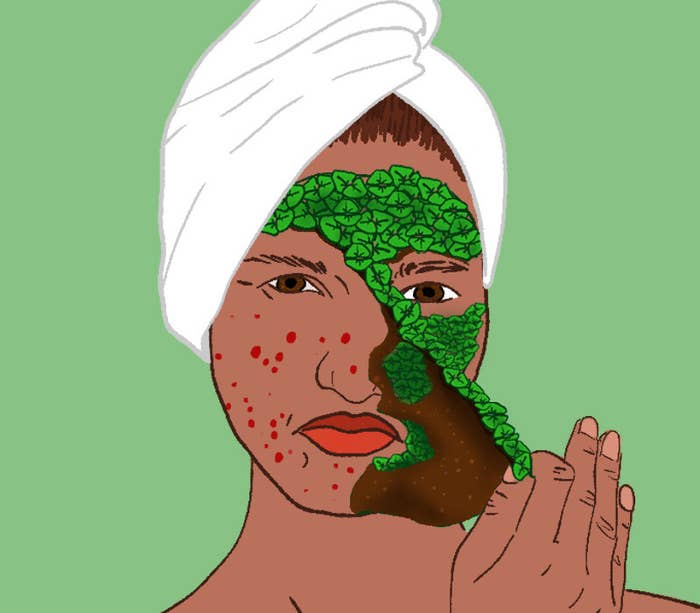
BuzzFeed may collect a share of sales or other compensation from the links on this page if you decide to shop from them. All products were independently selected by our editors, and the prices were accurate and items in stock at the time of publication.
What comes to mind when you think of “clean” beauty?
Maybe it’s strictly plant-based ingredients; or eco-conscious companies that prioritize sustainability; or “free-from” labels promising no sulfates, parabens, or phthalates; or women in flowy dresses and flower crowns twirling in a field of tall grass.
Therein lies the problem — there is no real definition of “clean” when it comes to cosmetics, and, according to experts, it has primarily become a term used in marketing language to sell products. Essentially, nobody is regulating the claim to be clean.
What is “clean” beauty?
“The market will move based on what the consumer wants, not necessarily what the science shows, because ultimately everyone wants to make a sale,” said Dr. Rachel Nazarian, a board-certified dermatologist in New York City. “That has driven everything in skincare. So clean beauty means nothing. If you have to give it a definition, it means take away anything that people might be worried about.”
When it comes to the ingredients you should actually avoid in cosmetics, Nazarian said there are two different routes to dictate that. “You can either go black-and-white science or you can play into the hype. And when you go black-and-white science, none of it makes sense. It's all safe. That's why it's still out there.”
These days, people seem to have developed a fear of the idea of chemicals altogether, which cosmetic scientist Jennifer Novakovich believes has fueled the “clean” movement along with basic science illiteracy. That’s why she founded The Eco-Well, a platform dedicated to making accurate scientific information regarding cosmetics available to everyone.
The chemophobic mindset is unfortunate because everything is a chemical, according to Novakovich, and “natural” also doesn’t mean safer. For instance, poison ivy and arsenic are both found in nature, but it’s commonly known that you do not want to come into contact with either.
“The idea that using things from agriculture is better is problematic,” Novakovich said. “Some ingredients you can get naturally, but we choose to make them synthetically for economic and sustainability reasons.”
She used vitamin C as an example. The amount of plant materials you would need to use to produce vitamin C would be not only economically draining, she explained, but also hugely destructive to the environment.
The high degree of variability when it comes to naturally derived ingredients presents another challenge, as does the fact that they generally do not undergo the same safety testing as synthetic ingredients.
“We should be applying the same standards that we apply to synthetic ingredients to natural [ones], but very few companies do it,” Novakovich said.
The misinformation around ingredients
Three of the main ingredients I tend to see mentioned in “free-from” claims include parabens, sulfates, and phthalates, which all fall under the umbrella of synthetic preservatives. And “clean beauty” messaging tells us that preservatives equate to toxic and bad.
But effective preservatives actually prevent something dangerous: “The greatest public health risk for products is microbial contamination,” Novakovich said. “People can actually die — people have died — from improperly preserved products.”
It is possible that any of these ingredients can cause irritation, because everyone’s skin is different. No matter what you’re using, it’s not a bad idea to patch-test a product on a small area of your skin to make sure you don’t react poorly. However, preservatives are necessary in skincare products, and most people tolerate them just fine.
In fact, parabens won the “contact non-allergen of the year” award from the American Contact Dermatitis Society in 2019, meaning that they’re one of the least allergenic preservatives available.
There has also been rigorous research to evaluate their supposed link to breast cancer, and Novakovich said that the body of evidence overwhelmingly supports safety in that regard as well.
“At this point, there’s probably like a thousand studies that have come to the conclusion that we don’t have evidence that parabens cause breast cancer or are meaningfully estrogenic,” she said. “They might be minutely estrogenic, but so are a lot of things. So much of what we eat is drastically more estrogenic.”
Chemists also like parabens because a little goes a long way, so you don’t need to use as much for them to serve their purpose.
When it comes to phthalates, Novakovich said that, while some are a concern, they’re just not relevant to cosmetics. Dimethyl phthalate has been completely phased out based on the fact that if you ingest a lot of it, it can temporarily disrupt your hormones, so diethyl phthalate — which has been shown to be safe — is the only one being used in any products.
She added that phthalates are ubiquitous in the environment, with the highest concentrations being found in food packaging and dust, not cosmetics. That makes it fairly difficult to say there are zero phthalates in any product, but applying something topically should not cause significant exposure.
Bacterial growth, on the other hand, can pose a danger to the user. Nazarian pointed out that naturally derived preservatives do not offer the same shelf stability as synthetic preservatives like parabens, sulfates, and phthalates — meaning the risk of bacterial growth goes up for products that don’t use them.
“That's what I find to be the most ironic part of all of this,” Nazarian said, referring to the “clean” beauty marketing touting the exclusion of these ingredients. “You're trying to do something that's supposed to be safer even though there was no evidence to really say it wasn't safe, truly, and now you're causing more problems and contact dermatitis and allergic reactions because there are a lot of things in nature that the body cannot handle.”
She went on to explain that nothing in nature can mimic the skin itself, so she sees it as a luxury that companies are able to create something that can safely repair your own skin and keep it strong and healthy.
“That's not a bad thing,” Nazarian said. “That's a good thing. And if you're using something like that and you don't have irritation and your skin actually tolerates it well, why would you throw it out just because it's not deemed clean?”
What to consider in choosing your skincare
So if not all chemicals or synthetic preservatives are bad, what should people avoid in their cosmetics?
“I like to go by irritation profile, because I can’t say that using any of those things they’re calling natural or clean may actually decrease your risk of developing anything bad,” Nazarian said. “But I can tell you a lot of them are linked to irritation.”
Vanicream
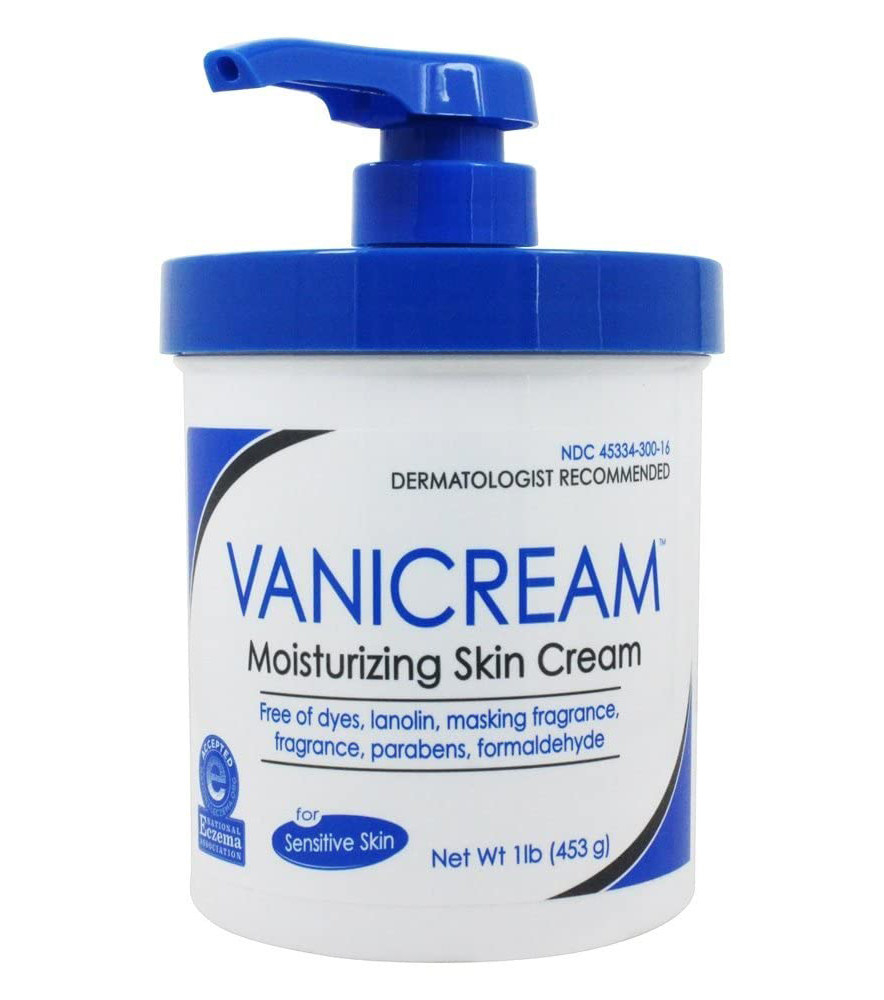
If you have sensitive skin and you’re looking for something that’s incredibly tolerable, Vanicream is one of her favorites for simple, basic skincare without any common irritants. She regularly recommends it to her patients and said that it’s very rare to find someone who has a problem with it.
Promising review: “My dermatologist recommended this cream for my hands, which are struggling with some dermatitis. It is fragrance-free (the 5-star "scent" rating refers to its lack of scent!) and works for hours. It is a bit greasy at first, but works into the skin quickly. I highly recommend it.” —William A. Nickles
You can buy Vanicream Moisturizing Skin Cream from Amazon for around $13.
VMV Hypoallergenics
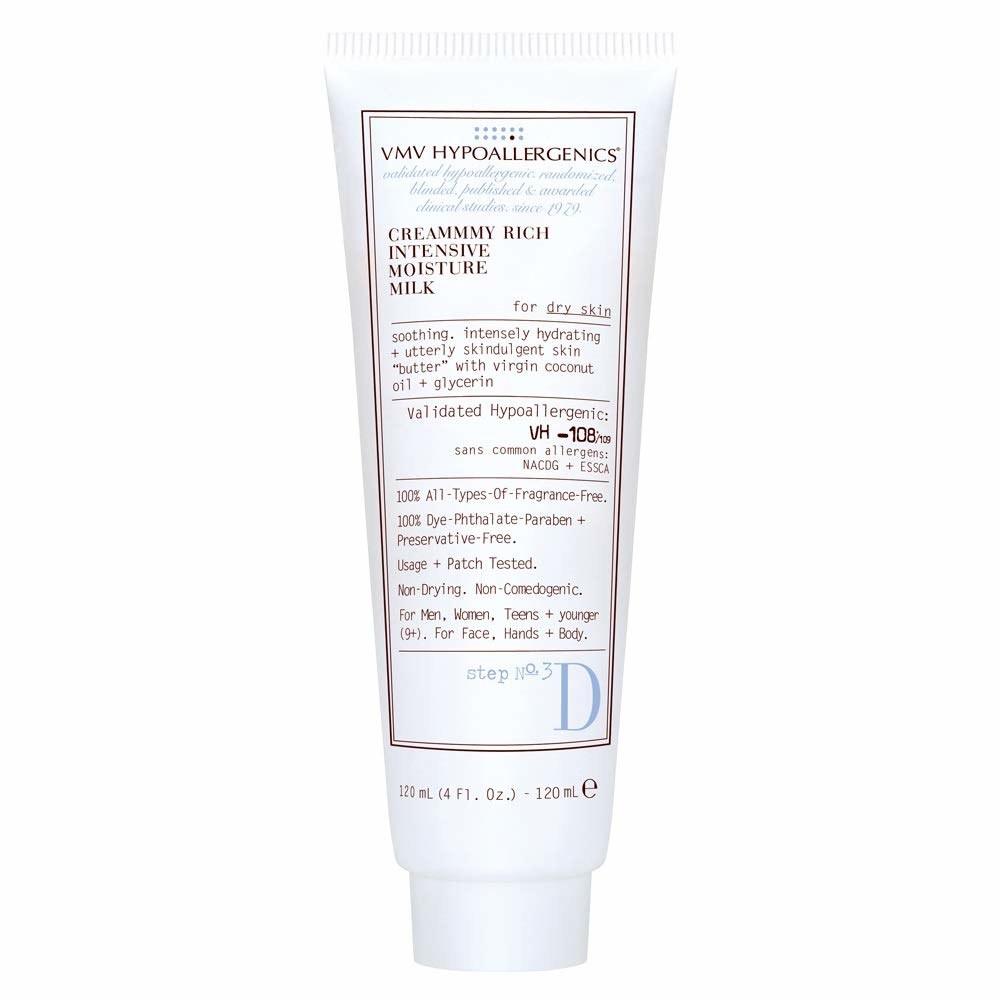
The other lesser known brand that Nazarian swears by is VMV Hypoallergenics. It was founded by a dermatologist with the intention of creating products that are unlikely to cause issues for the general population.
They work towards that goal by continuously adapting based on new research. Each year, the American Contact Dermatitis Society releases a list of the ingredients causing the most irritation or allergy, and VMV Hypoallergenics removes those ingredients from all of their products.
Promising review: “This is one of the only moisturizers that does not irritate my face when applying it on. I only have to use a small amount and it is a great product that I will continue to purchase.” —Marla Smith
You can buy VMV Hypoallergenics Creammmy-Rich Intense Moisture Milk from Amazon for around $23.
Though she knows it may be an unpopular opinion, Novavich said that no company does a better job at safety and sustainability substantiation than Procter & Gamble (the parent company of brands like Olay, Native, and SK-II). She doesn’t agree with all of their claims, but she has reviewed their sustainability management plan and finds it to be incredibly robust.
Olay Regenerist Retinol 24
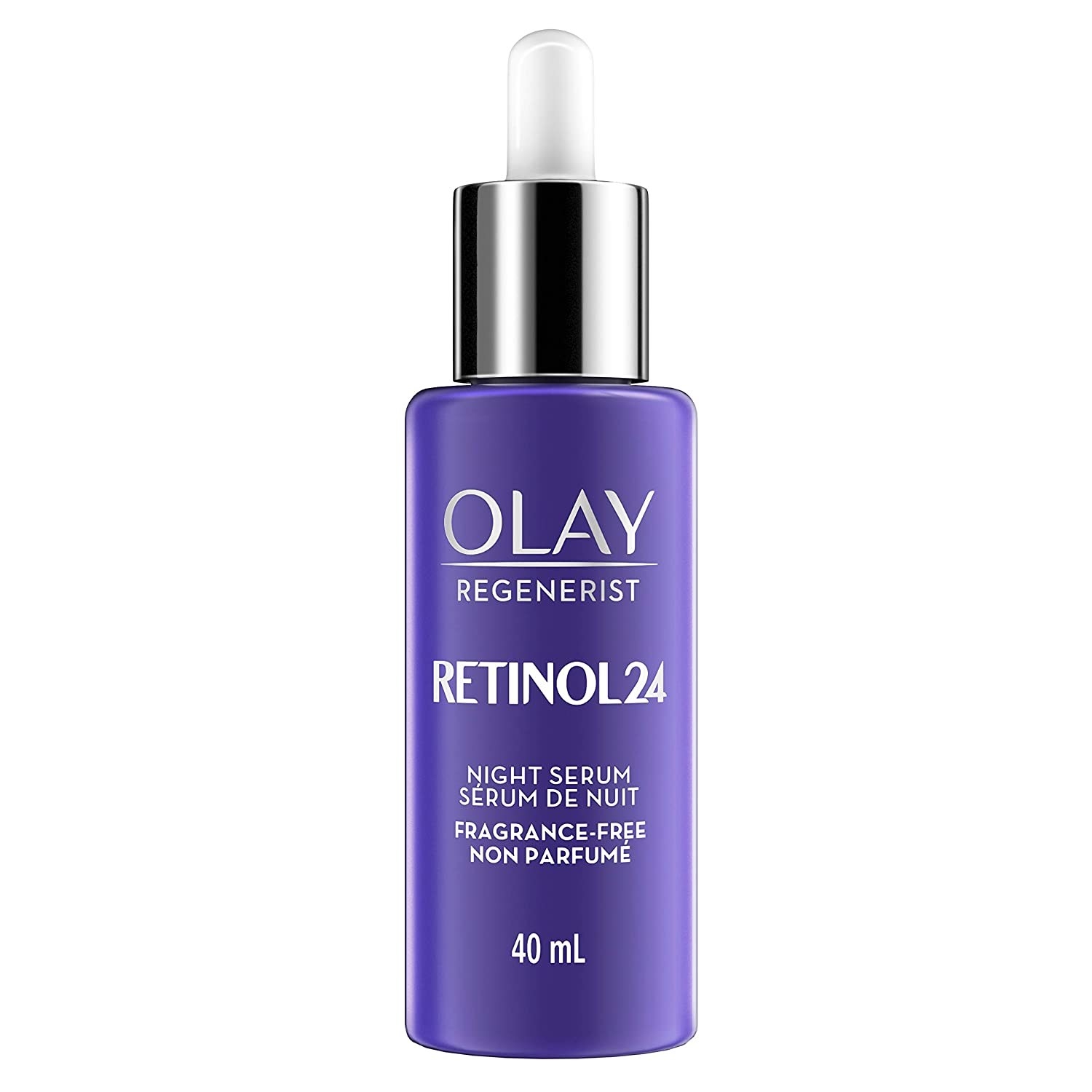
You can find Olay products in any drugstore, and they’re on the more affordable end of the skincare spectrum, so it’s nice to know that their products come from a company that does thorough research and testing.
Promising review: “I use this product every night and it makes my face smooth and does help with wrinkles. I then follow up with a moisturizer and it makes my skin feel wonderful!” —Walker
You can buy Olay Regenerist Retinol 24 Night Serum from Amazon for around $14.
Native Skinscare
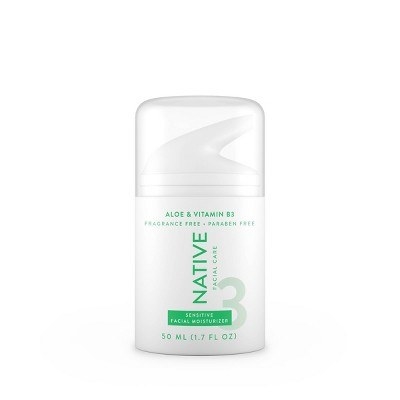
Native makes one of my favorite deodorants, but they have now expanded into skin and hair care as well. This moisturizer is formulated for sensitive skin with no dyes or synthetic fragrances. It also doesn’t use parabens, so it’s safe for those who do find parabens to be irritating.
Promising review: “My teenage daughter has super sensitive skin and is prone to breakouts, she loves this entire line of products and swears it is the best on the market and the results are amazing. She absolutely loves this entire line of products but this one in particular she loves the design of the bottle and how easy it is to use and apply.” —Anonymous via Native
You can buy Native Aloe & Vitamin B3 Sensitive Facial Moisturizer from Target for around $20.
SK-II Skin Mask
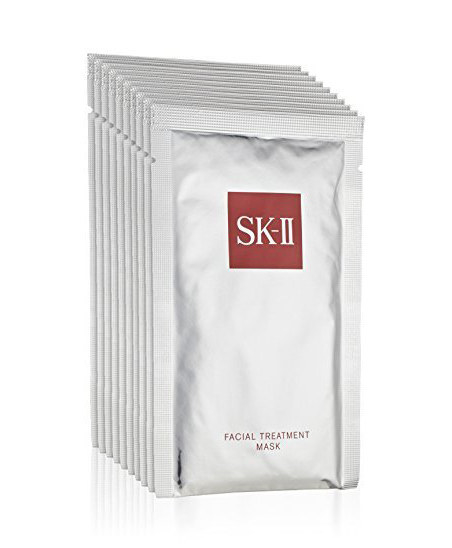
On the more high-end side of the Procter & Gamble spectrum, SK-II is a Japanese brand of luxury skincare products featuring Pitera, an ingredient derived from a unique staring of yeast that they believe to be the secret to beautiful skin.
Promising review: “My husband says these masks make me look 10 years younger. He doesn’t care how expensive they are because they’re cheaper than a facelift. And Botox.” —J. Scott
You can buy 10 SK-II Facial Treatment Masks from Amazon for around $99.
Novakovich knows that most companies are not able to invest millions into the same rigorous research that Procter & Gamble does, but she said that Deciem (now owned by Estée Lauder) substantiates safety at a very high level and does a great job with public education and informing the consumer.
The Ordinary Hyaluronic Acid Serum
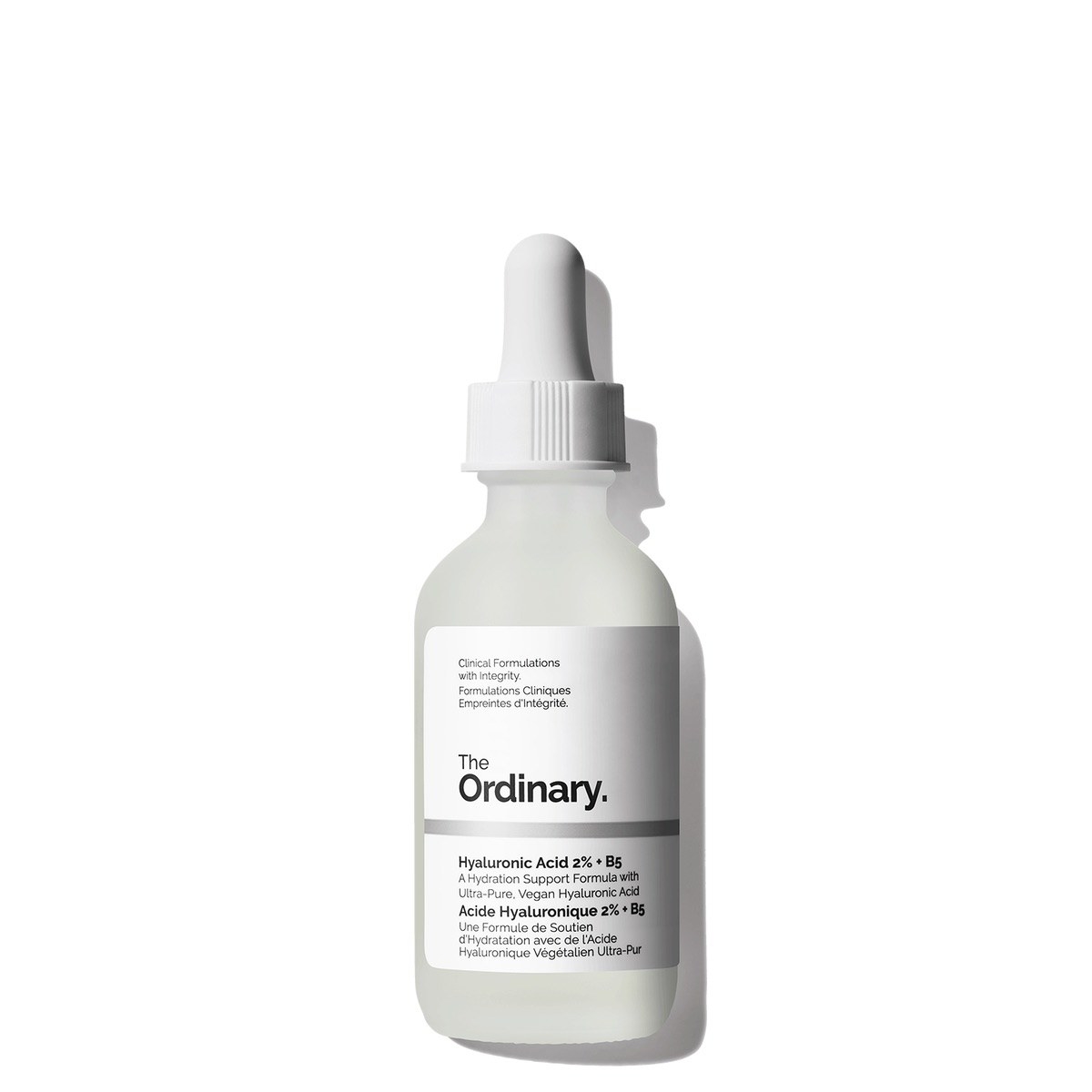
Their most popular brand is The Ordinary, which has blown up thanks to simple, high-quality products that cost much less than other trendy skincare on the market.
Promising review: “I love the products from this company. They are not breaking the bank and are effective. Don't be fooled by all these expensive potions out there. Mostly pay for packaging, doesn't mean they work. This stuff however, is amazing.” —Brigit B.
You can buy The Ordinary Hyaluronic Acid Serum from Amazon for around $14. ●
